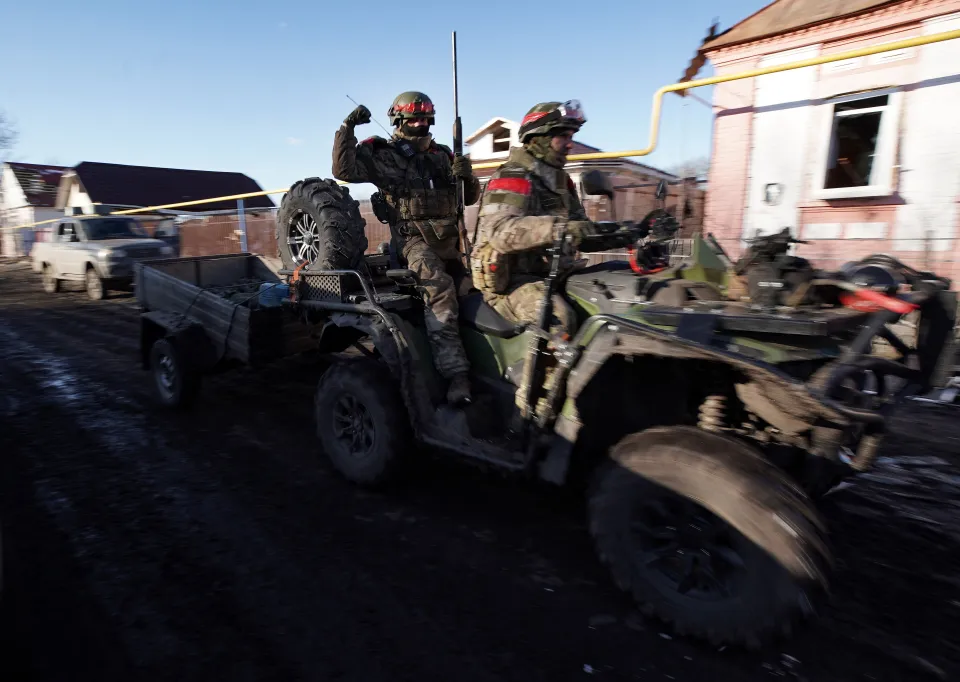A Controversial Scheme Unfolds
In a disturbing revelation that has shocked Russia and the wider world, allegations have surfaced that some Russian women are marrying soldiers just before they are deployed to the frontlines in Ukraine, in hopes of securing substantial government compensation upon their deaths. This compensation, reportedly as high as £73,000, has turned into a grim incentive for what critics are calling “gravedigging marriages.”
The Origin of the Claims
The explosive claims came to light during a podcast episode featuring Russian lawyer Marina Orlova. In her commentary, Orlova jokingly described a scheme where women target single soldiers, marry them, and then collect death compensation if the soldiers die in combat. Though she and her co-host maintained that their discussion was intended as “black humour,” the topic quickly went viral and prompted a fierce national backlash.
Viral Reactions and First-Hand Accounts
Following the release of the podcast, social media platforms such as VK (Russia’s equivalent of Facebook) became inundated with anecdotal stories corroborating Orlova’s controversial comments. Users began sharing chilling stories about women they believed were exploiting the wartime situation for financial gain.
Personal Stories from VK
One user, identified as Galina, claimed her brother had married just before heading to the frontlines. “My brother also signed right before leaving. They just brought him in, he hadn’t even been buried yet, and his supposedly fake wife was already running around the offices to arrange the money,” she wrote.
Another widow asked on VK whether she could receive payments for a second husband, having already claimed compensation for her first spouse who died in 2022. This unsettling question triggered a wave of responses ranging from outrage to disbelief.
Public Outcry and Moral Backlash
The Russian public and media did not take these revelations lightly. Many citizens expressed disgust at what they saw as a mercenary abuse of national tragedy.
Journalist and Civil Reactions
Independent journalist Andrey Kalitin commented on the situation by saying, “This is probably what absolute fall into the abyss looks like.” Others expressed a deep sense of moral and societal decay, wondering how wartime sacrifice had become a financial transaction.
One user, Anastasia Marinina, expressed her horror: “What a nightmare. Where is the world heading? Didn’t she get enough for the first one, and she’s probably sending the second one herself?”
The Legal and Political Response
Government Intervention
Putin’s administration, particularly through state prosecutors, has now taken a keen interest in the matter. Legal proceedings may be in the pipeline, especially against Marina Orlova, who could face up to seven years in prison under Russia’s strict laws against discrediting the military.
The pro-Putin cultural group “Call of the People” demanded swift legal action, branding the claims as a grave insult to soldiers risking their lives. The group’s leader, Sergei Zaitsev, condemned the remarks as an affront to fallen heroes and their families.
Official Statements
“Her cynical and blasphemous statements about a ‘business plan’ based on the deaths of our servicemen are an insult to everyone who is risking their lives on the front lines today, defending our Motherland,” said Zaitsev.
Marina Orlova’s Apology
In the wake of mounting public and legal pressure, Marina Orlova issued a formal apology. She claimed her intent had not been to offend or disrespect anyone, and distanced herself from the controversy by stating: “I apologise for myself personally and I apologise even for Daria. In no way did I mean to offend anyone.”
However, Orlova also mentioned that she was now the target of online harassment and threats, particularly from men angered by her comments. “The bullying has started, of course. I get so many threats from men,” she said.
The Economic Reality Behind the Scheme
Wartime Economics and Incentives
At the heart of this controversy lies a harsh economic reality. The Russian government has been offering substantial payouts to the families of deceased soldiers. These compensation schemes, while meant to support grieving families, have inadvertently created a financial motive for opportunists.
In some economically distressed regions of Russia, a £73,000 payout represents a life-changing sum. For comparison, the average annual income in many parts of rural Russia can be less than £10,000. This disparity has made the idea of “gravedigging marriages” not just plausible, but attractive to individuals driven by desperation or greed.
Precedents of State-Driven Birth and Death Incentives
This isn’t the first time the Russian government has attempted to use financial incentives to manipulate demographics.
Teenage Pregnancy Bonuses
In a related and equally controversial policy, pregnant Russian schoolgirls have recently been offered nearly £1,000 in state benefits to encourage childbirth. This scheme, piloted in the Oryol region, aims to address Russia’s declining birth rate but has also sparked fierce debate about state-sponsored morality and ethics.
The Oryol region, which has seen a population slump of nearly 8,000 people, is being used as a testbed for these policies. Critics argue that financial rewards for underage pregnancies and soldier deaths point to a government more interested in numbers than lives.
Cultural Consequences and Social Breakdown
Loss of Social Trust
The rise of such schemes, whether real or exaggerated, is eroding public trust in institutions and social bonds. The idea that love and marriage could be so brazenly commodified during wartime strikes a particularly painful chord.
Family members of deceased soldiers now report scrutinizing sudden marriages or questioning the motives of spouses. This suspicion has fractured communities and left many in emotional turmoil.
Gender Politics in Wartime
The controversy has also reignited discussions around gender politics in Russia. While the women involved are facing harsh criticism and even legal consequences, few are asking why the system allows such exploitation in the first place.
If a state system is so flawed that it can be manipulated through something as personal as marriage, the fault may lie as much with policy as with people.
Russia’s Wartime Morality Crisis
As Russia’s war in Ukraine drags on, the country appears to be undergoing a moral and ethical crisis. The idea that marriage and death have become transactional is not just a media scandal; it is symptomatic of a nation under immense social and political strain.
From teenagers being financially rewarded for pregnancies to alleged widow profiteering, Russia’s wartime governance is being called into question on multiple fronts.
Conclusion: A Grim Reflection of Desperation
Whether this trend is widespread or isolated, the story of “gravedigging marriages” has struck a nerve in Russia and beyond. It reflects not only the unintended consequences of wartime policy but also a deeper social malaise fueled by poverty, fear, and desperation.
The Kremlin’s swift response indicates the seriousness with which this issue is being taken. But unless the underlying economic and moral pressures are addressed, more disturbing stories like this are likely to surface.
Ultimately, this controversy serves as a grim reminder of the human cost of war—not just on the battlefield, but in the quiet, desperate calculations made far from the frontlines.








